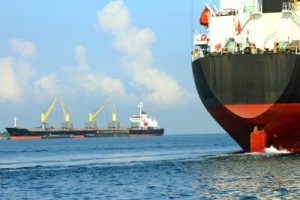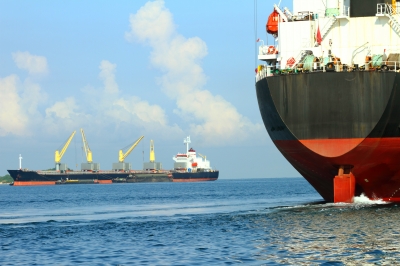 A congressional bicameral committee has approved a bill that will allow foreign shipping lines to dock at multiple Philippine ports and co-load import and export cargoes cleared by the Bureau of Customs. At the same time, the committee expanded coverage of the bill to include non-containerized cargoes.
A congressional bicameral committee has approved a bill that will allow foreign shipping lines to dock at multiple Philippine ports and co-load import and export cargoes cleared by the Bureau of Customs. At the same time, the committee expanded coverage of the bill to include non-containerized cargoes.
After the bicameral committee meeting on June 3, Senator Paolo Benigno Aquino IV, who authored the Senate version of the bill (Senate Bill No 2486), said the approved measure harmonized the Lower House version – which only covers container vans – with that of the Senate’s which covers all foreign cargoes.
“We (Senate) had a larger scope from theirs and we were able to harmonize by accepting the Senate version which has a larger scope for foreign cargoes,” Aquino said.
He added there was “some cleaning up of language, harmonization of definition of terms but more or less, it was the same spirit from our committee report.”
High cost of local shipping
Philippine Inter-island Shipping Association (PISA) executive director Atty. Pedro Aguilar, in a phone interview with PortCalls, said that if approved, the bill will affect about 5% of the current container volume handled by domestic carriers. This volume includes transhipments and empty containers.
PISA does not yet know the effect of the bill on non-containerized operations because the expanded proposal was discussed for the first time only during the bicameral conference.
However, Aguilar reiterated that the measure does not address the high cost of domestic shipping, including one of its key causes—the tax and duty on fuel to which local shipping lines are subjected but foreign carriers are not. Aguilar said fuel accounts for up to 40% of local shipping costs.
Under the proposed law, a foreign vessel arriving from a foreign port will be allowed to carry foreign cargo to its domestic port of final destination after being cleared at its port of entry. A foreign vessel arriving from a foreign port will also be allowed to carry foreign cargo from another foreign vessel calling the same port of entry to the domestic port of final destination of such foreign cargo. These provisions likewise apply to loading of export cargoes.
Under the present rules, a foreign shipping line will have to transfer its shipments to Philippine-registered carriers for final delivery to local ports to comply with the country’s cabotage policy. But in cases of a deficit in bottoms, the Maritime Industry Authority may issue a special permit to a foreign shipping line so it can deliver its cargo to domestic ports. In such a case, only the original foreign vessel and none other may bring the cargo to its final destination.
Cabotage intact
Section 8 of the Lower House version, House Bill 5610, effectively ensures the cabotage policy remains intact. The bill noted that “no foreign vessel shall be allowed to carry any domestic cargo or domestic container van, whether loaded or empty, even if such van may contain foreign cargo.”
Aquino called the measure a “landmark bill in terms of opening up our shipping industry to foreign players, which hopefully can bring down prices of goods as well, which will be to the benefit of our consumers.”
The bill is a priority measure in Congress, and the target is to enact it into law this month.
In his 2013 State of the Nation Address, President Benigno Aquino III urged Congress to amend the country’s cabotage policy “to foster greater competition and to lower the cost of transportation for our agricultural sector and other industries.” – Roumina Pablo
Image courtesy of kongsky at FreeDigitalPhotos.net





